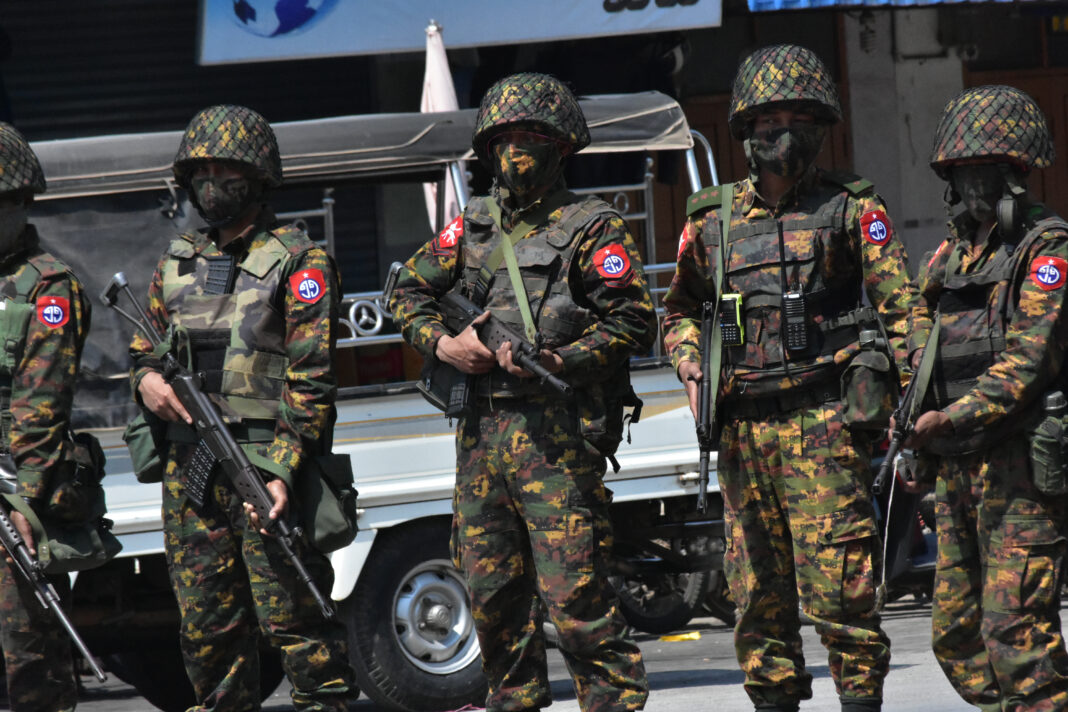by Pierpaolo Petrelli *
The Republic of the Union of Myanmar, formerly known as Burma, has been in a state of complex internal conflict for several decades. Recent years have seen a significant escalation in tensions, particularly between the Myanmar military, known as the Tatmadaw, and various ethnic armed organisations. The situation gained global attention following military operations in Rakhine State in 2017, which led to widespread allegations of human rights abuses against the Rohingya minority. This was compounded by conflicts in Kachin and Shan states, where similar allegations were made against the Tatmadaw.
These events have led to severe humanitarian crises and raised questions about command responsibility and respect for international law within the ranks of the Tatmadaw. An investigation into the accountability of senior Tatmadaw officials for alleged human rights violations committed by the military highlights the challenges of enforcing international justice. What follows are the legal interpretations and implications of examining the actions of the Myanmar Army (Tatmadaw) under international criminal law, with a particular focus on the principles of command responsibility.
Legal interpretations
Application of Command Responsibility: The principle of command responsibility, integral to international criminal law and specifically codified in Article 28 of the Rome Statute, is central to evaluating the liability of Tatmadaw leaders. This legal doctrine implicates commanders for crimes committed by subordinates if they knew, or should have known, about the crimes and did not take all necessary and reasonable measures to prevent or repress their commission.
Categorization of Human Rights Violations: Incidents in Rakhine, Kachin, and Shan states potentially constitute war crimes and crimes against humanity. These categorizations are grounded in the definitions provided by the Geneva Conventions and the Rome Statute, highlighting the need for a meticulous legal analysis of each incident under international law.
Challenges in International Legal Proceedings: The non-membership of Myanmar in the International Criminal Court (ICC) presents jurisdictional challenges. Additionally, political resistance within Myanmar, difficulties in evidence collection, and the need for international cooperation pose significant hurdles in pursuing justice.
Legal Implications
Imperative for International Accountability: These findings underscore the urgent need for robust international mechanisms to hold military leaders accountable. This necessitates the effective functioning of international courts and the potential for universal jurisdiction in certain cases.
Reinforcing International Legal Systems: The complexities encountered advocate for strengthening the international justice system. This includes enhancing the capabilities for evidence gathering, ensuring witness protection, and fostering international consensus for action against international crimes.
Creating Future Legal Frameworks: The situation in Myanmar may set important legal precedents for the application of international criminal law in similar conflict scenarios. It emphasizes the importance of evolving legal frameworks to address the nuances of modern conflicts.
In conclusion, the legal challenges presented by the Myanmar case are indicative of the broader difficulties faced in applying international criminal law to complex conflicts. It underscores the importance of international collaboration, legal innovation, and a committed global effort to uphold justice and accountability. This scenario stresses the need for continuous development in international law to effectively address the intricacies of contemporary conflicts and human rights violations.
To learn more, read our Myanmar conflict factsheet
On the cover photo, Army crackdown on protesters © R. Bociaga/Shutterstock.com
* Pierpaolo Petrelli is professor of Transnational Terrorism & International Law at O.P. Jindal Global University (India)
























